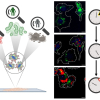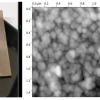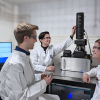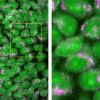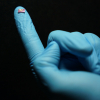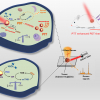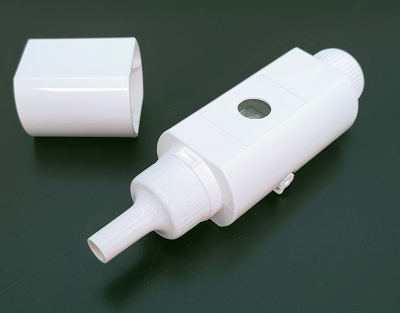
Breathalyser-type tests for COVID-19 have been developed, which rely on differences in concentrations of volatile organic compounds exhaled by those infected with the coronavirus, but most require bulky, non-portable instruments for analysis. Xing Yi Ling and colleagues from Nanyang Technological University, Singapore, wanted to develop a quick, convenient and accurate breathalyser test that would be suitable for on-site screening of large numbers of people. They designed a handheld breathalyser that contains a chip with three surface-enhanced Raman scattering (SERS) sensors attached to silver nanocubes. When a person exhales into the device for 10 s, compounds in their breath chemically interact with the sensors. Then, the researchers load the breathalyser into a portable Raman spectrometer that characterises the bound compounds based on changes to the molecular vibrations of the SERS sensors.
The team found that Raman spectra from COVID-positive and -negative people were different in regions responsive to ketones, alcohols and aldehydes, which they used to develop a statistical model for COVID diagnosis. They tested the breathalyser on 501 people in hospitals and airports in Singapore, who were shown by RT-PCR to be negative (85.2 %), positive and symptomatic (8.6 %), or positive and asymptomatic (6.2 %) for the coronavirus. The method had a 3.8 % false-negative and 0.1 % false-positive rate, comparable to RT-PCR tests, but it could be completed on-site in less than 5 min. The breathalyser could someday be a new tool to reduce the silent spread of COVID-19 in communities, the researchers say.








